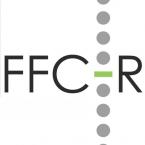
The FFCR is an association of professionals created in 1992. Her main actions are organized around:
- the development and promotion of the conservation of cultural property ;
- the recognition and protection of the professional and legal status of the conservator-restorer.
- the development of a high level of education, research and practice in the field of conservation in accordance with the code of ethics and the legislations in force.
- Coordination and the development activities and exchanges between its members.
- coordination thinking, and recommendations principles worked in conjunction with E.C.C.O., ENCoRE (European Network for Conservator-restorer Education), ICOM, ICCROM, (International Centre for the Study of the Preservation and Restoration of Cultural Property) and through them at a broader European level.
As a member of E.C.C.O. (European Confederation of conservators-restorers' organisations) FFCR has adopted professional guidelines whom article 19 states that "The Conservator-Restorer should never support the illicit trade in cultural heritage, and must work actively to oppose it. Where legal ownership is in doubt, the Conservator-Restorer must check all the available sources of information before any work is undertaken".
Article 26 also states : " Involvement in the commerce of cultural property is not compatible with the activities of the Conservator-Restorer".
FFCR is also member of the french section of the International comittee for the Blue Shield and the Observatory of Art trade and cultural goods circulation" wich is gathering informations to prevent illicit trade in cultural heritage and improve international cooperation on the matter with OCBC (Office central de lutte contre le trafic des biens culturels).
Conservators-restorers, through their thorough knowledge of objects and specifically their materiality, the information collected during their work and the securing assignments on the premises where the pieces are located, are an essential part in the struggle against illegal art traffic.
They also work (trainings and expertise) with every organisations that might be in charge of cutural goods even temporarily for example after seizures.
Ours members participates in groups of european standardization (CEN) to improve the quality of condition surveys ; and the development of specific tags for the tracking of cultural properties.


